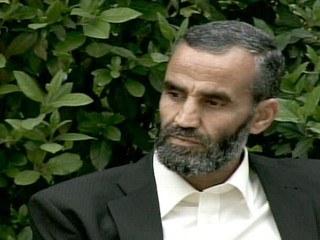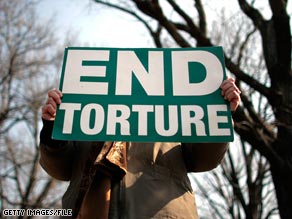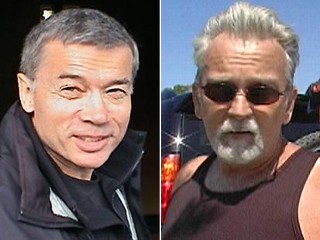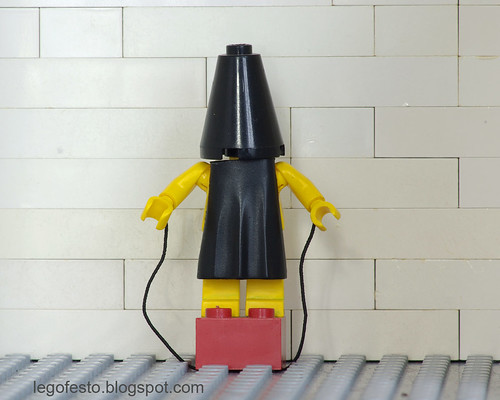See
here.

In an exclusive interview with ABC News, Boumediene said the interrogators at Gitmo never once asked him about this alleged plot, which he denied playing any part it.
"I'm a normal man," said Boumediene, who at the time of his arrest worked for the Red Crescent, providing help to orphans and others in need. "I'm not a terrorist."
The 43-year-old Algerian is now back with his wife and two daughters, a free man in France after a Republican judge found the evidence against Boumediene lacking. He is best known from the landmark Supreme Court case last year, Boumediene v. Bush, which said detainees have the right to challenge their detention in court.
That decision was a stunning rebuke of the Bush administration's policies on terror suspects. It set up a ruling by District Court Judge Richard Leon, a former counsel to Republicans in Congress appointed to the bench by Bush, that there was no credible evidence to keep Boumediene detained.
After what Boumediene described as a 7½ year nightmare, he is now a free man. Boumediene: "I don't think. I'm sure" about torture.
In 2001, Boumediene, his wife and two young daughters lived in Sarajevo, Bosnia. He worked for the Red Crescent Society, having done stints for the organization in Pakistan and Albania.
He was arrested by Bosnian police in October 2001 and charged with conspiring to blow up the U.S. and British Embassies. He called the charges false and ludicrous.
"They search my car, my office, nothing. Cell phone, nothing. Nothing. Nothing," he said.
The charges were dropped, and the Bosnian courts ordered him and five others freed. But under pressure from the Bush administration, the Bosnian government handed him over to the U.S. military.
On January 17, 2002, Boumediene's hands and feet were placed in shackles, and he was put on a military plane en route to Guantanamo Bay. It was a time of high anxiety, and the Bush administration was taking no chances.
Two weeks later, in his State of the Union address, President Bush touted the arrests in Bosnia to show early progress in the war on terror.
"Our soldiers, working with the Bosnian government, seized terrorists who were plotting to bomb our embassy," Bush said in his address. To this day, officials of the Bush administration have provided no credible evidence to back up that accusation.
Boumediene said he endured harsh treatment for more than seven years. He said he was kept awake for 16 days straight, and physically abused repeatedly.
Asked if he thought he was tortured, Boumediene was unequivocal.
"I don't think. I'm sure," he said.
Boumediene described being pulled up from under his arms while sitting in a chair with his legs shackled, stretching him. He said that he was forced to run with the camp's guards and if he could not keep up, he was dragged, bloody and bruised.
He described what he called the "games" the guards would play after he began a hunger strike, putting his food IV up his nose and poking the hypodermic needle in the wrong part of his arm.
"You think that's not torture? What's this? What can you call this? Torture or what?" he said, indicating the scars he bears from tight shackles. "I'm an animal? I'm not a human?"
...Oddly, Boumediene said no one at Gitmo ever asked him about the alleged plot to blow up the embassies in Sarajevo. They wanted to know what he knew about al Qaeda and Osama bin Laden, he recounted, which was nothing.
Boumediene said it was in his interest to lie to the interrogators, who would reward the detainees if they admitted guilt.






